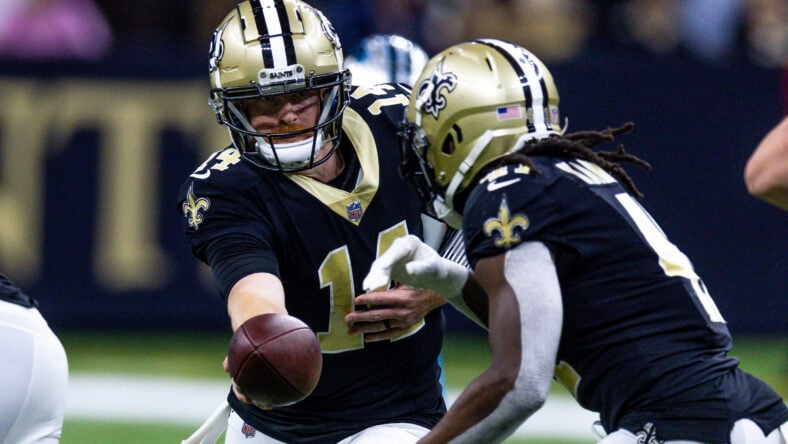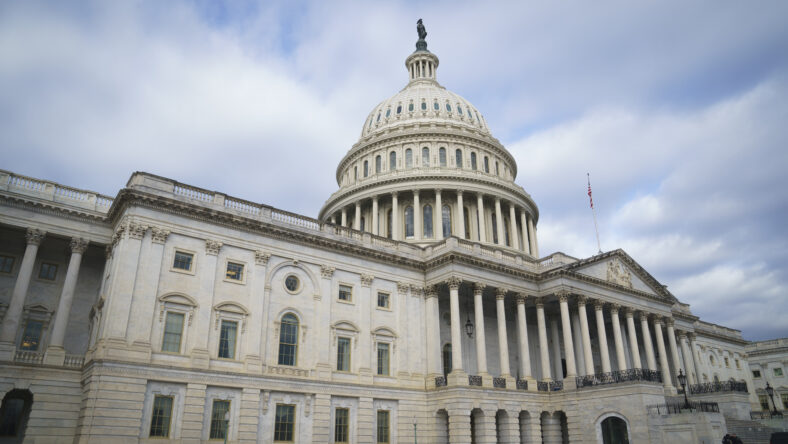Fentanyl that Killed Tyler Skaggs Delivered to Angel Stadium on Day He Died, Gov’t Claims. Are Angels Responsible for Pitcher’s Death?
The government says it has evidence that will show a drug dealer delivered the counterfeit pills that killed Angels pitcher Tyler Skaggs to an employee at Angel stadium the same day as Skaggs’ fatal overdose.
The evidence is not being publicly disclosed and is being held back for trial. It allegedly demonstrates that former Angels’ Communications Director Eric Kay obtained fake oxycodone pills from one of his drug suppliers at Angel stadium on June 30, 2019, just before Kay left with Skaggs and the team for a Texas road trip, according to prosecutors.
Later that night, Kay brought the pills to Skaggs’ hotel room around midnight, according to text messages obtained by federal prosecutors. Skaggs never made it to the game the next day.
The pitcher was found dead in his room at the Town Square Hilton in Southlake the next morning, just before the start of a four-game series against the Rangers.
Autopsy reports show that Skaggs choked on his vomit and had a toxic mix of alcohol and the painkillers fentanyl and oxycodone in his system. Prosecutors say medical reports will demonstrate that if not for the fentanyl, Skaggs would be alive, blaming his death on the synthetic opioid known to be fatal in small doses or when combined with substances like alcohol.
“Kay provided T.S. with counterfeit oxycodone pills. T.S. ingested the pills provided by Kay and in short manner passed away from the effects of the fentanyl found in the counterfeit pills,” prosecutors write in court documents.
It is unclear if Kay knew the pills were laced with fentanyl. Text messages with his alleged drug suppliers on the online marketplace OfferUp show him repeatedly asking if the drugs contain fentanyl, calling it “scary,” and trying to avoid it, according to government documents. However, prosecutors say these texts illustrate that Kay knew there was a grave risk the pills could contain fentanyl and should be held responsible for Skaggs death because he supplied the deadly drug.
Involvement of Angel Stadium
The evidence that traces the procurement of the fentanyl laced pills to Angel Stadium, is just one piece of a larger case against Kay by federal authorities. Court documents place tremendous emphasis on Kay’s relationship with the team & use of workplace facilities to operate his alleged drug distribution network. Several text exchanges with alleged drug dealers indicate Kay had the drugs delivered to Angel Stadium on more than one occasion, according to prosecutors.
In one such exchange, Kay allegedly offers to leave tickets to an Angels game for a dealer if he will bring drugs to the Stadium, saying “I just can’t leave work tonight.”
Speaking with another alleged dealer, Kay says “U have a son? Could hook him with a signed Trout ball for a trade if U want?” The alleged dealer replies, “We dodger fans my boi lol.”
The government also found emails on Kay’s work account, alleging they are between Kay and his drug suppliers. Court documents claim, “Kay would use his work time and his work location, when he was in proximity to the players, to obtain controlled substances… he would communicate with individuals during the workday and even ask them to deliver oxycodone pills to Angel Stadium.” The government says Kay planned and intended to obtain the pills “while at Angel Stadium,” calling it part of his modus operandi or pattern of criminal behavior.
In 2019, during the execution of a search warrant on Kay’s office at Angel Stadium, federal agents found personal items, such as a razor blade and a small cylinder that later tested positive for oxycodone and traces of fentanyl. Prosecutors say it demonstrates that Kay “was obtaining and storing pills with him at Angel Stadium,” saying, “the evidence that Kay had drug residue in his desk drawer is relevant to showing Kay’s knowledge and intent of obtaining pills at work.”
Allegations of a Drug Operation Within Angels Organization
The government’s case extends to a larger theory that Kay was running a drug distribution operation within the Angels organization, allegedly contacting at least nine different drug suppliers to try to obtain pills for various Angels players, often using Skaggs as a middleman, according to government documents. The government accuses Kay of distributing oxycodone to several Angels players beginning as early as 2017, and promises that at least five major league baseball players will take the stand to testify against him. A civil attorney representing the Skaggs family said in court documents that Kay may have been providing illegal opioids to at least six Angels players.
The government says text messages will prove that Kay often used conversations with Skaggs to coordinate the distribution of oxycodone pills to other players. Prosecutors claims some of the players received two to three pills while others would ask for up to 20, calling Kay the “singular source” to players within the organization for oxycodone pills.
Who Knew What?
Kay reportedly told the Drug Enforcement Agency that “at least two executives” in the Angels organization knew he was dealing illicit drugs to Angels players.
Attorney Rusty Hardin, who also represents Texans quarterback Deshaun Watson in a separate string of civil lawsuits, is representing the Skaggs family in a wrongful death suit against the Angels.
Hardin claims the Angels promoted a “drug addict to an executive position” with “unlimited access to the Angels’ players.” Court papers allege that back in April 2019, Kay’s own family members reportedly informed Kay’s boss, Tim Mead that Kay was providing drugs to players within the organization and begged him to intervene but Mead failed to take action.
Mead’s attorney denied this, telling ESPN, “Before Tyler Skaggs’ tragic death, Tim Mead was not aware, informed, or had any knowledge whatsoever that Tyler may have used opioids, or that Eric Kay or any Angels employee had ever provided opioids to any player. Any statement to the contrary is reckless and false.”
Hardin also claims that Angels’ traveling secretary Tom Taylor was “told about Skaggs’ drug use long before his death,” citing a Los Angeles Times investigation.
Kay, who was with the Angels from 1996 to 2019, began abusing illegal drugs just two years after joining the team and “went to rehab multiple times” over the nearly 24-year period, Hardin’s lawsuit claims. In 2019, Kay allegedly missed work due to an overdose and was hospitalized. Hardin says executives within the Angels organization knew Kay was in rehab and had a longstanding problem.
Are the Angels Legally Responsible?
Legally speaking, tens of millions of dollars could be hanging in the balance, if the organization is found civilly responsible for Skaggs’ death, in full or in part. The evidence uncovered as part of the government’s case could assist the family’s civil case against the Angels. For example, Kay allegedly obtained pills through drug deals at Angel Stadium, distributed them to players on team trips, stored and used drugs at work, offered team tickets and memorabilia in exchange for drop-offs and communicated with dealers using his company email address.
Employers can be held responsible for the acts of an employee if the employee is acting within the scope of his or her employment when committing the wrongful act. Hardin claims the Angels could also reasonably foresee what was going to happen given the team’s alleged knowledge of Kay’s drug use and distribution to players.
“It is no coincidence that the Angels allowed Kay to be in the clubhouse,” says the Skaggs family lawsuit, inferring that Kay’s alleged purchase of painkillers for the players was “incidental to his employment.”
They call the Angels clubhouse, a “toxic environment that pressured players to play through the pain.” Players who missed games due to injuries were “called “pu**ies” and ridiculed. Tyler quickly realized that he was expected to pitch even when he was hurt,” says the civil complaint.
Skaggs, who suffered a string of injuries and missed a good part of the 2015 season due to a Tommy John surgery, continued to experience pain and discomfort through the 2017 and 2018 seasons, according to his family’s suit. The family says the Angels are aware of the “rigors of a 162 -game schedule and are aware that players are at risk of turning to medication to assist with pain management.” The Skaggs’ suit accuses the Angels of creating “the perfect storm,” by employing an alleged drug addict and distributor.
The family says the Angels had a duty to provide a safe work environment for Skaggs, a duty to properly hire, train and supervise employees, a duty to prevent its agents from distributing drugs in the workplace and a duty to intervene when it allegedly gained knowledge of Kay’s drug use and distribution.
For its part, the Angels organization has denied having any knowledge of Kays’ activities and conducted its own internal investigation which found the same. President John Carpino issued a statement that said, “We have never heard that any employee was providing illegal narcotics to any player, or that any player was seeking illegal narcotics.”
“The Angels Organization strongly disagrees with the claims made by the Skaggs family and we will vigorously defend these lawsuits in court,” the organization continued.
Kay pled not guilty to all charges and is cooperating with authorities. Kay told the LA Times,
“Watching and reading the sordid details of my own weaknesses unfold on the national stage has been nothing short of horrible. However, I am aware and respectful of the fact that my pain is entirely insignificant compared to the pain that the Skaggs’ family is feeling and will continue to feel for the rest of their lives. I made the decision to cooperate with law enforcement because I felt that it was the right thing to do. That is all I can do from this point on. If it comes with public shame and derision, I accept that.”
Kay faces charges for drug distribution and drug conspiracy in Skaggs’ overdose death. The charges carry a sentence of 20 years up to life in prison if convicted.
Categorized:The Latest Breaking News LOJ Exclusives MLB



